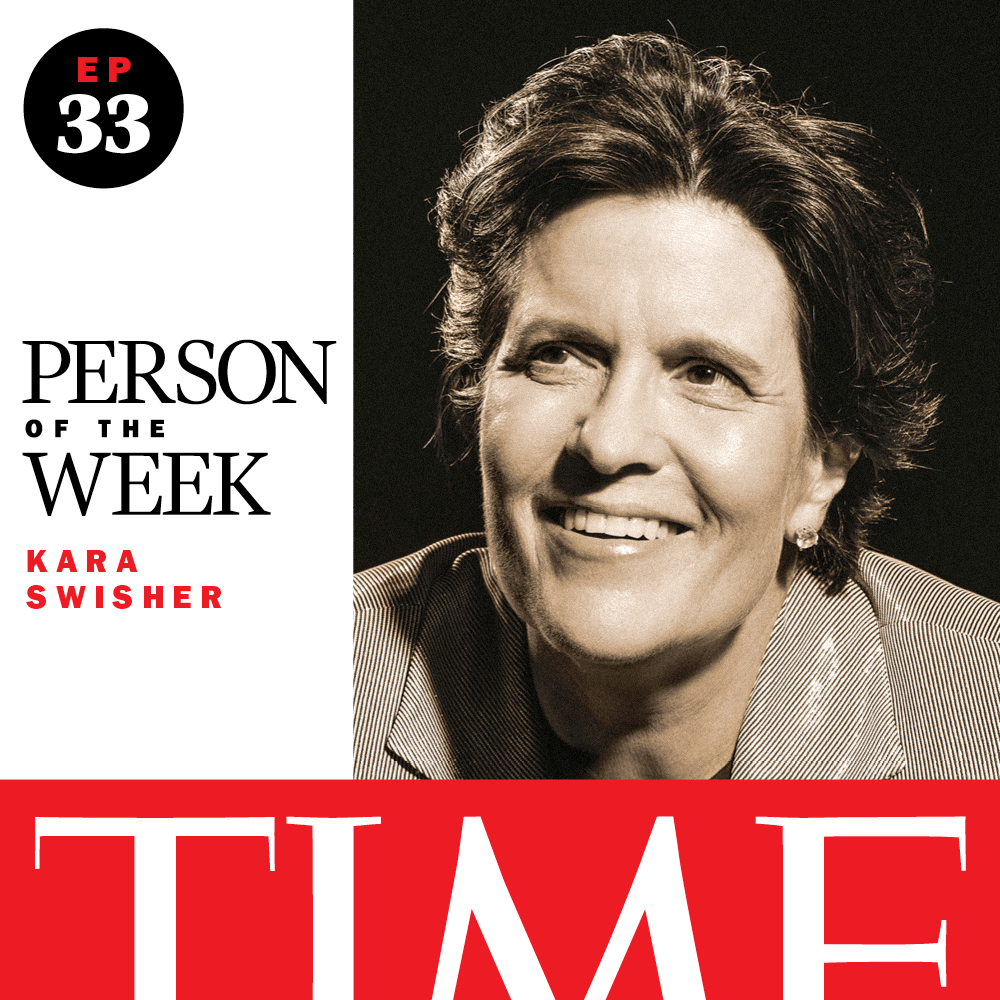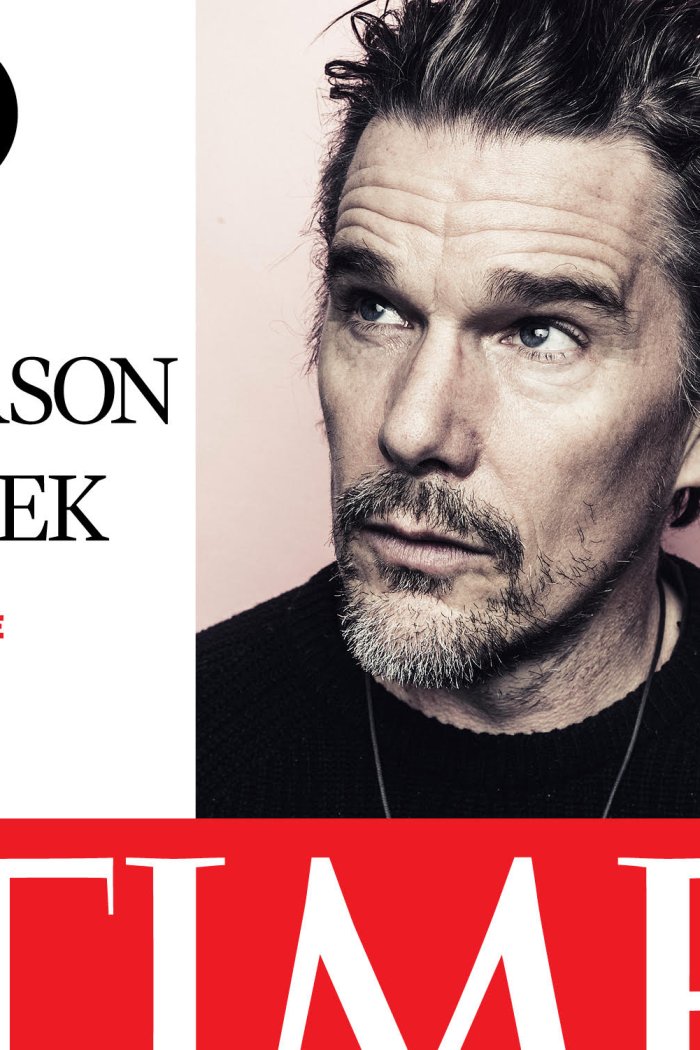Nobody straddles the worlds of tech and media quite like Kara Swisher. Since her early days covering the internet for the Washington Post and the Wall Street Journal, she’s built a singular career helping us all understand what’s going on behind the scenes in Silicon Valley. As the co-founder of the AllThings Digitalconference and the co-founder of Recode, she’s grilled everybody from Steve Jobs to Mark Zuckerberg to Elon Musk. Along the way, she’s become one of the most distinctive voices in podcasting, as the host of On with Kara Swisher and co-host of Pivot and host of Recode Decode.
Now, she’s out with a new book, Burn Book: A Tech Love Story, where she chronicles the rise of the internet, the dangers it poses to humanity, and why she still has hope for the future, all while calling on the industry to clean up its act. Part memoir, part manifesto, this book isn’t just a juicy read— it’s also a valuable historical document, giving readers an inside look at the architects of some of the biggest tech moments of the last 30 years, and dishing on what these Masters of the Universe are really like.
We sat down to talk about how the media industry is transforming, why some tech bros seem so immature, and why Silicon Valley seems ten steps ahead of the government.
Tune in every Thursday, and join us as we continue to explore the minds that shape our world. You can listen to the full episode in the player above, but here are a handful of excerpts from our conversation, which have been condensed and edited for clarity.
On the future of media since the so-called ‘media apocalypse:’
There’s a lot of small, interesting little, very speedy little ships that economically work just fine, right? Their costs are in line with their expansion and their costs are in line with their revenues. That’s what has to happen, right? Unfortunately, that’s really small. There’s a whole bunch of small little outfits that do great. I do great. Everyone’s like, podcasting sucks. I’m like, oh, please don’t get into it. I’ll take all the money. I make a lot of money from podcasting.
It’s a business. It’s called a news business, just like it’s show business. And I focus on the business. What’s the actual business? I also think you can do very well if you make great content and have your economics in line, whatever it happens to be.
But it’s not the apocalypse. It’s the same thing that’s been happening. It’s just continuing. digital advertising is dominated by Google and Facebook. It just is, look at the numbers this past quarter: they own it. We don’t own it anymore…
You have to figure out what your business model is. And then you have to recognize it’s not a very good business, like in general. I always point to the New York Times, which is considered the gold standard of this thing. And I think it made 2.4 billion in revenue and a couple hundred million in profits. Facebook had 40 billion in profits or whatever the number just was for the year. Like, are you kidding me? Is there any way to compete with that? There is not, my friend, right?
On why tech bros are so juvenile:
What was particular about Silicon Valley, which I think is different, was the minute I got there, the juvenilization of men was so clear and obvious. And I think one of the things that struck me was: they wanted to be childlike, like have the inspiration and imagination of children.
I don’t know, because adults are very imaginative. Let me just tell you, Steve Jobs never uttered nonsense like this. It was nonsense. And he was so different. Like so was Gates.
It was venture capitalists and the indulgence of young people.
At the beginning, they were young. They were young. And then they get so rich. And then everyone agrees with them. And they get to do whatever they want, and they certainly can do it, they’re so wealthy, the wealth is astonishing. It was all about comfort: the clothes were comfortable, the shoes were comfortable. It was fleece and soft things and soft chairs and, you know, here’s your dry cleaning. Here’s your haircut. And I thought, wow, it’s like extension of college, but a college that I never went to.
It’s weird. Like you can’t operate on your own.
On tech companies’ responsibility for the fracturing of democracy:
They facilitated an enormous amount of misinformation and they just happened to be the ones in charge when most people are getting their information from them. There’s a very bright line between the rise of the internet and the rise of this. There just is. Not just this, but radicalization, self esteem issues, addiction issues. Like, it goes hand in glove.
Like, if this was opiates, we’d be like, I see. Right? For some reason with cigarettes and opiates, we’re like, oh, look at that link, right?
This is the same kind of link. Now, again, I’m not one of those people who says they’re at fault for everything, but the fact that they pretend that they have no culpability…
And liability needs to be there. There’s no regulation to speak of that has any teeth and all the regulations that apply to them are old, the old antitrust rules. There’s no national privacy bill. There’s no data transparency bill. There’s no algorithmic transparency bill…
And so, you know they owe us. They owe the American people and the globe some of their incredible amounts of lucre. They do, they just do. And I’m a capitalist at heart. Like I build businesses, but even I know when I’m getting a handout.
Right? And so I just feel like we have to right-size this situation. It’s happened before with the railroads or electrical or gas. We fought all those things.
Now again, it’s not perfect, but: they have some level of culpability, some level of liability, they have [to have] some level of regulation. Not perfect, but you imagine a group of people that have none, no regulation? I don’t. I’ve never seen it.
- Cybersecurity Experts Are Sounding the Alarm on DOGE
- Meet the 2025 Women of the Year
- The Harsh Truth About Disability Inclusion
- Why Do More Young Adults Have Cancer?
- Colman Domingo Leads With Radical Love
- How to Get Better at Doing Things Alone
- Michelle Zauner Stares Down the Darkness


